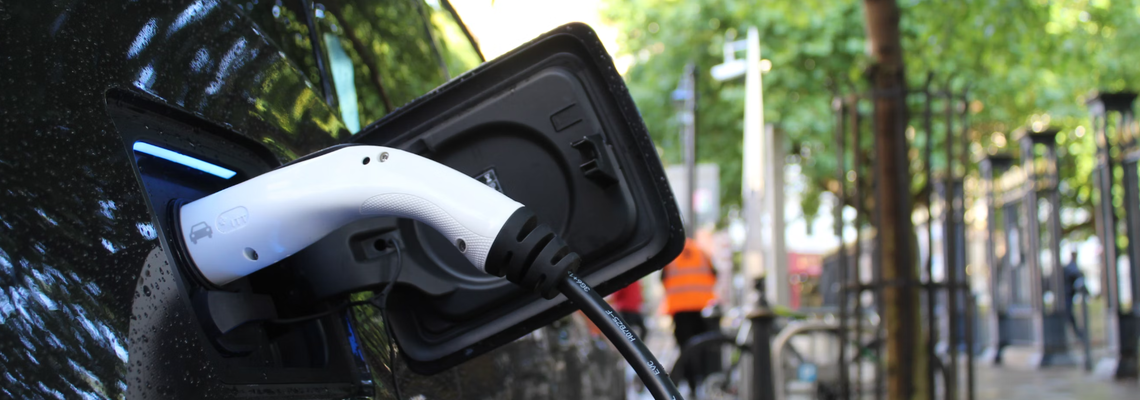Tag: Combustion engines
Anti-pollution zones for classic cars?
The world of classic cars is always on the move. On the one hand, there is nostalgia and the desire to keep the history of the automotive industry alive. On the other hand, there is the need to adapt to the constantly changing conditions and regulations regarding the environment and sustainability. A recent development in this context is the new "Villes et villages d'accueil des véhicules d'époque" label, which was launched by the French Federation of Historic Vehicles (FFVE). But what exactly is behind this label and what does it mean for the environmental zones?
France: scrappage scheme 2.0?
With a unanimous vote, the reuse of cars originally destined for scrapping was decided in favour of the country's most vulnerable citizens. While the intention behind this measure is respectable, its implementation leaves many questions unanswered and raises serious concerns about its environmental impact.
HVO100 - Is the driving ban for standard diesel now coming?
On 22 March 2024, the German Federal Council gave its approval for the authorisation of climate-friendly pure diesel fuels. The beacon of hope of this new era is HVO100, short for Hydrotreated Vegetable Oil. This fuel, which is produced from the conversion of vegetable oils or recyclable waste materials, is to be available at German filling stations from 13 April 2024.
Low emission zone in Wallonia overturned: Major cities targeted, introduction postponed to 2025
Wallonia, known for its picturesque landscapes and charming towns, has decided to introduce a controversial low emission zone in 2022. The previous Walloon government had drawn up a plan to gradually ban the most polluting vehicles from the roads. This measure triggered fierce debate and unrest. However, the current Environment Minister Céline Tellier (Ecolo) appears to be overturning these plans.
Attention low emission zones in Belgium: Up to 350 euro fine!
Belgium has drastically tightened its low emission zones for vehicles in major cities such as Brussels, Antwerp and Ghent since 2022, with further restrictions planned for 2025. Anyone driving in these cities must expect a fine of up to 350 euros. This regulation applies not only to local drivers, but also to foreign drivers. In all three cities, there is an environmental zone in which certain vehicles are not allowed to drive. Cameras monitor compliance with the rules by recording and comparing the licence plates of vehicles.
E-fuels as an alternative to electric - what is the current status?
The discussion about sustainable mobility has recently focussed increasingly on e-fuels. E-fuels, synthetic fuels obtained by reversing the combustion process, have the potential to offer a climate-friendly alternative to electric drives. However, their environmental compatibility and energy balance still need to be investigated further.
Emissions from the construction industry: first steps towards the zero emissions target
Construction sites and the construction industry itself are major emitters of CO2, particulate matter and other substances that contribute to air pollution in environmental zones and urban centres in general. However, the industry has already taken important steps towards zero emissions and climate neutrality: construction vehicles are becoming increasingly electric!
Fines chaos in London: Thousands of fines invalid?
The Dutch organisation Transport in Noord wants to sue London for unlawful fines. These were recently sent in bulk to traffic offenders in recent years. A florist was retroactively fined 400,000 euros. If the lawsuit is upheld, fines totalling one billion euros could become invalid. Despite legal hurdles and high costs, the London case shows us the way to a cleaner, more sustainable future. Electromobility as a solution - now is the time for change!
Attention motorists: France tightens environmental zones
Residents and tourists, bus and lorry drivers beware! Since the beginning of the year, the rules in the environmental zones in several French cities have been tightened. In this way, the government is attempting to further reduce air pollution and pursue its roadmap towards green mobility.
Electric car shock: German government cancels electric premium
The recent cancellation of the environmental bonus for electric cars is causing a stir. Sales of electric cars have already plummeted in a very short space of time. The German government is thus jeopardising air quality. Do we now have to expect more environmental zones?

![[Translate to Englisch:]](https://www.green-zones.eu/fileadmin/_processed_/1/6/csm_screenshot_2024-04-18_103425_5f408d0c5c.png)
![[Translate to Englisch:]](https://www.green-zones.eu/fileadmin/_processed_/5/2/csm_screenshot_2024-04-15_132436_4025f02de7.png)
![[Translate to Englisch:]](https://www.green-zones.eu/fileadmin/_processed_/5/6/csm_screenshot_2024-04-08_091843_7ca6dec20c.png)
![[Translate to Englisch:]](https://www.green-zones.eu/fileadmin/_processed_/4/4/csm_screenshot_2024-03-14_120324_f342bfe558.png)
![[Translate to Englisch:]](https://www.green-zones.eu/fileadmin/_processed_/8/3/csm_screenshot_2024-03-14_130615_2483b36b7d.png)

![[Translate to Englisch:]](https://www.green-zones.eu/fileadmin/_processed_/6/8/csm_bild_baustelle_e4557c443b.png)
![[Translate to Englisch:]](https://www.green-zones.eu/fileadmin/_processed_/6/4/csm_richterbank_blog_ae7ea28639.png)
![[Translate to Englisch:]](https://www.green-zones.eu/fileadmin/_processed_/1/9/csm_bild_fr_flagge_0f154f6505.png)
